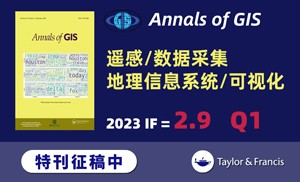当前位置:
X-MOL 学术
›
IEEE Trans. Autom. Sci. Eng.
›
论文详情
Our official English website, www.x-mol.net, welcomes your
feedback! (Note: you will need to create a separate account there.)
Zonally Robust Decentralized Optimization for Global Energy Interconnection: Case Study on Northeast Asian Countries
IEEE Transactions on Automation Science and Engineering ( IF 5.9 ) Pub Date : 5-11-2020 , DOI: 10.1109/tase.2020.2991042 Tao Ding , Qingrun Yang , Ya Wen , Ye Ning , Yongheng Yang , Frede Blaabjerg
IEEE Transactions on Automation Science and Engineering ( IF 5.9 ) Pub Date : 5-11-2020 , DOI: 10.1109/tase.2020.2991042 Tao Ding , Qingrun Yang , Ya Wen , Ye Ning , Yongheng Yang , Frede Blaabjerg
Nowadays, the entire world is facing challenges in energy and environment. To resolve these problems, the power systems are interconnected to promote the development of renewable energy sources (RESs). However, the economic dispatch (ED) problem for the global energy interconnection (GEI) should tackle two issues: 1) handle the uncertainty from RES and allocate the responsibility among the interconnected countries and 2) protect the information privacy through the dispatch. Motivated by the above, this article proposes a zonally adjustable robust decentralized ED model for the GEI. In the model, each country is only responsible for its own uncertainty, and tie-line power flows remain unchanged under uncertainties. Moreover, an alternating direction method of multipliers (ADMM)-based fully distributed algorithm is used, in which only limited information should be exchanged between neighboring countries. Finally, a case study on the Northeast Asian countries verifies the effectiveness of the proposed method. Note to Practitioners-Since the renewable energy generation has a spatial correlation among regional countries, global energy interconnection (GEI) aims to combine several power systems together to promote the renewable energy accommodation. However, two problems need to be considered: 1) Information Privacy: The information privacy of the power system in each country should be preserved, which prevents the GEI from conducting a centralized optimal dispatch framework and 2) Uncertainty: The uncertain output of renewable energy resources brings challenge to the power system secure operation. The main contribution of this article is to set up a zonally robust decentralized optimization for the GEI, where the zonally robust economic dispatch (ED) is conducted by the area control error (ACE) system to manage the difference between scheduled and actual generation under the uncertainties, and the alternating direction method of multipliers (ADMMs) algorithm is adopted for decentralizing the zonally adjustable robust ED model, which only needs limited information. In particular, this article uses a real-world example from Northeast Asian Countries to help engineers understand the advantages of the GEI and the new dispatch framework.
中文翻译:

全球能源互联网区域稳健分散优化:东北亚国家案例研究
当前,世界面临能源和环境挑战。为了解决这些问题,电力系统互联以促进可再生能源(RES)的发展。然而,全球能源互联网(GEI)的经济调度(ED)问题应解决两个问题:1)处理RES的不确定性并在互联国家之间分配责任;2)通过调度保护信息隐私。受上述启发,本文提出了一种针对 GEI 的区域可调鲁棒去中心化 ED 模型。模型中,各国只对本国的不确定性负责,联络线潮流在不确定性下保持不变。此外,采用基于交替方向乘子法(ADMM)的全分布式算法,邻国之间仅交换有限的信息。最后通过东北亚国家的案例研究验证了该方法的有效性。从业者须知——由于可再生能源发电在地区国家之间具有空间相关性,全球能源互联网(GEI)旨在将多个电力系统结合在一起,以促进可再生能源消纳。然而,需要考虑两个问题:1)信息隐私:每个国家电力系统的信息隐私都应得到保护,这阻碍了GEI进行集中的优化调度框架;2)不确定性:可再生能源出力的不确定性资源匮乏给电力系统安全运行带来挑战。 本文的主要贡献是为GEI建立了区域鲁棒分散优化,其中区域鲁棒经济调度(ED)由区域控制误差(ACE)系统进行,以管理计划发电与实际发电之间的差异。不确定性,采用交替方向乘子法(ADMMs)算法对区域可调鲁棒ED模型进行分散,只需要有限的信息。本文特别使用东北亚国家的真实示例来帮助工程师了解 GEI 和新调度框架的优势。
更新日期:2024-08-22
中文翻译:

全球能源互联网区域稳健分散优化:东北亚国家案例研究
当前,世界面临能源和环境挑战。为了解决这些问题,电力系统互联以促进可再生能源(RES)的发展。然而,全球能源互联网(GEI)的经济调度(ED)问题应解决两个问题:1)处理RES的不确定性并在互联国家之间分配责任;2)通过调度保护信息隐私。受上述启发,本文提出了一种针对 GEI 的区域可调鲁棒去中心化 ED 模型。模型中,各国只对本国的不确定性负责,联络线潮流在不确定性下保持不变。此外,采用基于交替方向乘子法(ADMM)的全分布式算法,邻国之间仅交换有限的信息。最后通过东北亚国家的案例研究验证了该方法的有效性。从业者须知——由于可再生能源发电在地区国家之间具有空间相关性,全球能源互联网(GEI)旨在将多个电力系统结合在一起,以促进可再生能源消纳。然而,需要考虑两个问题:1)信息隐私:每个国家电力系统的信息隐私都应得到保护,这阻碍了GEI进行集中的优化调度框架;2)不确定性:可再生能源出力的不确定性资源匮乏给电力系统安全运行带来挑战。 本文的主要贡献是为GEI建立了区域鲁棒分散优化,其中区域鲁棒经济调度(ED)由区域控制误差(ACE)系统进行,以管理计划发电与实际发电之间的差异。不确定性,采用交替方向乘子法(ADMMs)算法对区域可调鲁棒ED模型进行分散,只需要有限的信息。本文特别使用东北亚国家的真实示例来帮助工程师了解 GEI 和新调度框架的优势。









































 京公网安备 11010802027423号
京公网安备 11010802027423号